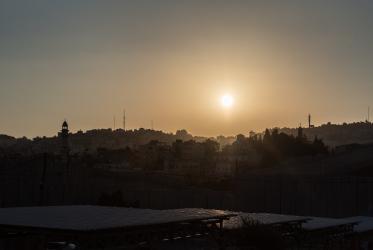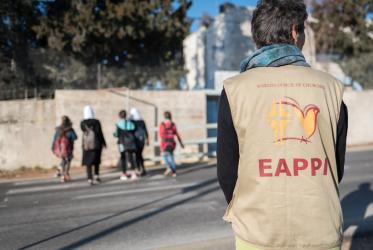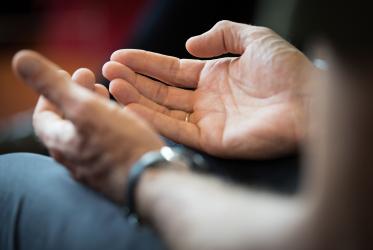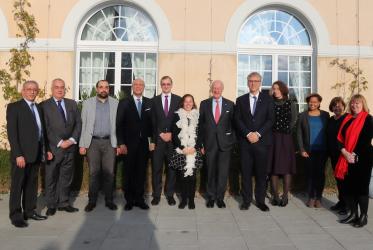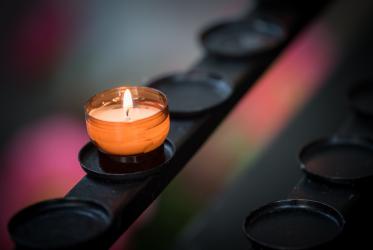Displaying 41 - 60 of 99
12 September 2019
WCC pressing ahead with disarmament work
28 August 2019
A faith-based, holistic approach to HIV and AIDS-care
13 March 2019
"What matters is winning the peace in Syria," UN envoy says
13 December 2018
WCC condemns attack on Christians in Egypt
02 November 2018
Broken glass of hope grown out of rubble
16 July 2018
WCC calls for immediate end to siege and civilian attacks in Syria
26 February 2018
Trying to do good for the world
18 December 2017
WCC Executive Committee comments on situation in Zimbabwe
22 November 2017
